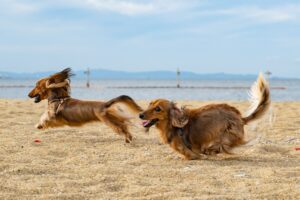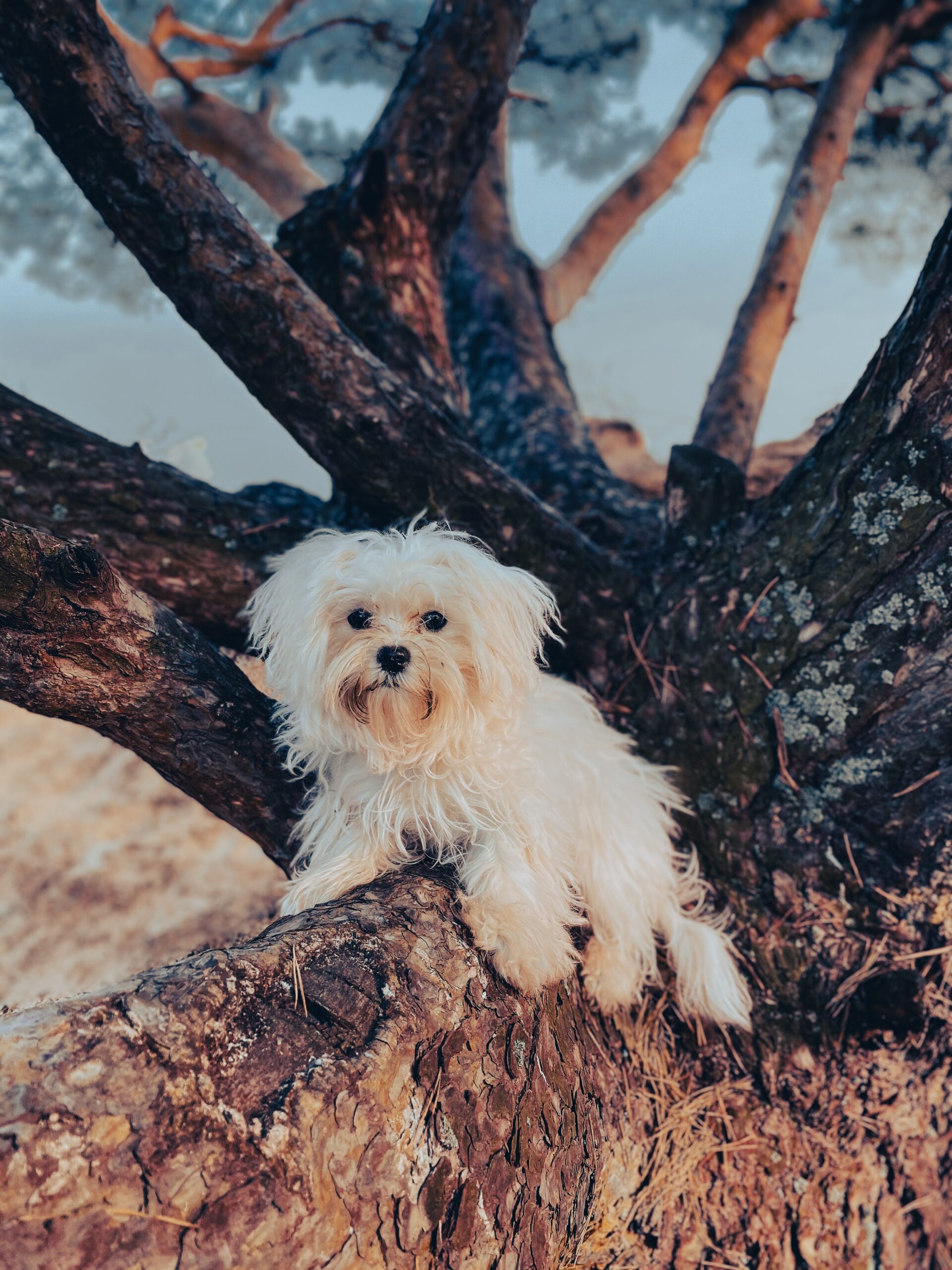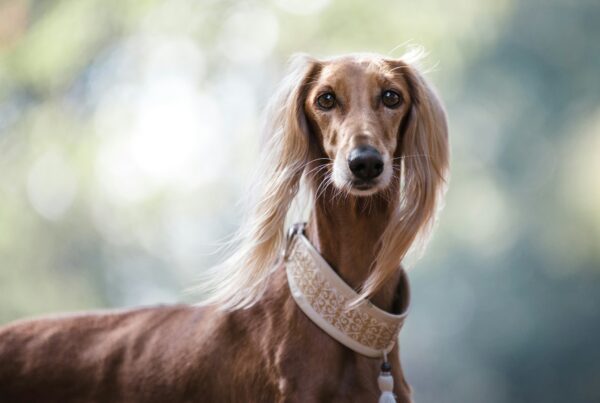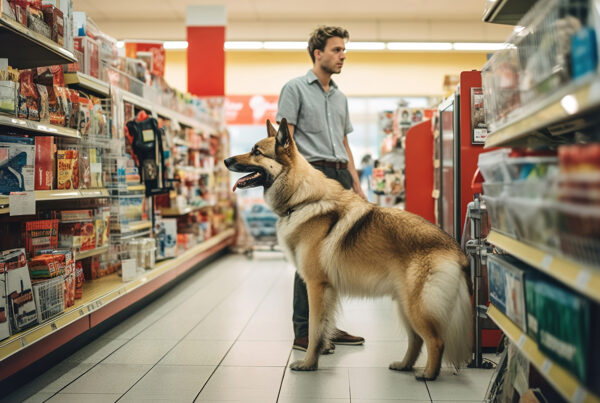It can be worrying to see your dog looking skinny as a pet parent. You may worry that they are not getting enough nutrients or that they are not healthy. However, there are some things you can do to help your skinny dog gain weight. First, take a look at their diet and make sure they are getting enough calories and nutrients. You may need to increase their food intake or substitute higher-calorie foods for their regular food. Second, make sure they are getting enough exercise. Exercise helps build muscle mass, which can help your dog look and feel more muscular. Finally, consider giving your dog supplements to help them gain weight.
The Importance of a Healthy Diet for Skinny Dogs
As much as we all love our skinny dogs, it’s important to remember that they need a healthy diet just like any other dog. Unfortunately, many people think that because their dog is thin, they don’t have to worry about their diet as much. It couldn’t be further from the truth! Like humans, being overweight or obese can lead to a whole host of health problems for dogs, including joint pain, diabetes, and even heart disease. An obese dog’s lifespan is typically significantly shorter than the lifespan of a healthy dog, too.
That’s why it’s so important to make sure that your skinny dog is getting all the nutrients they need from a healthy diet. Like with people, there are many different ways to do this, but some of the best things you can do are to make sure they’re getting plenty of protein, fat, and fiber. You should also avoid feeding them foods that are high in carbohydrates, like grains or potatoes.
Talk to your veterinarian if you’re not sure what kind of food is best for your skinny dog. They can help you create a tailored diet plan to ensure your dog stays healthy and happy for years to come.
Here are some best ways to help your skinny dog gain weight:
Increasing Your Dog’s Food Intake
There are a number of reasons why you might need to increase your dog’s food intake. Perhaps your dog is pregnant or nursing and needs more calories to support her litter. Maybe your dog is very active and burns a lot of calories daily. Or, your dog could be suffering from an underlying health condition that is causing him to lose weight. Whatever the reason, if you need to increase your dog’s food intake, you can do a few things.
- First, consider switching to high quality organic dog food like Timberwolf Organics. These formulas are designed specifically for dogs who need more calories and will provide your dog with the nutrients he needs without overfeeding him. If you’re not sure which food to choose, ask your veterinarian for a recommendation.
- Secondly, you can add healthy fats to your dog’s diet. Adding a small amount of olive oil or coconut oil to your dog’s food can help increase his calorie intake without making him too full. You can also try feeding your dog healthy treats, which will help him get the calories he needs.
Give your dog plenty of freshwaters. Drinking lots of water can increase your dog’s appetite, so always have a freshwater bowl. If you’re concerned about your dog’s weight, talk to your veterinarian. They can help you create a plan to gain weight safely.
Higher Calorie Foods for Your Dog

There are a variety of higher-calorie foods that you can feed your dog to help them gain weight. Here are some of the best options:
- Wet food: Wet food is generally higher in calories than dry food. If your dog is underweight, you may want to switch to a wet food diet or add wet food as a supplement to their dry food.
- Raw meat: Raw meat is an excellent source of calories and nutrients for dogs. If you are feeding your dog a raw diet, you can add extra meat to their meals to help them gain weight.
- Cooked meat: Cooked meat is also a good source of calories for dogs. You can cook meat specifically for your dog or simply give them leftovers from your meals.
- Cheese: Cheese is high in calories and fat, making it an excellent food for dogs who need to gain weight. You can give your dog cheese as a treat or add it to their meals.
- Peanut butter: Peanut butter is another high-calorie food perfect for dogs who need to gain weight. You can add peanut butter to your dog’s food or give it to them as a treat.
If you are concerned about your dog’s weight, talk to your veterinarian. They can help you create a feeding plan to help your dog reach a healthy weight.
The Importance of Exercise for Skinny Dogs
Many people think that since their dog is skinny, they don’t need to exercise. However, this couldn’t be further from the truth. Exercise is just as important for skinny dogs as for any other type of dog.
There are a few reasons why exercise is so important for skinny dogs.
- First, it helps them to build muscle. If your dog is too skinny, it may be lacking in muscle mass. It can lead to health problems later on in life.
- Second, exercise helps to improve circulation. It is especially important for skinny dogs, as they are more prone to circulatory problems. Exercise helps get the blood flowing and can help prevent circulatory problems from developing.
- Third, exercise helps to improve digestive health. A sedentary lifestyle can lead to digestive problems, as the muscles in the digestive tract can become weak. Exercise helps keep these muscles strong and can help prevent digestive problems from developing.
- Fourth, exercise helps to burn calories. This is important for all dogs but is especially important for skinny dogs. If your dog is too skinny, it may not be getting enough calories and could end up becoming malnourished.
So, as you can see, exercise is just as important for skinny dogs as for any other type of dog. If you have a skinny dog, give them plenty of opportunities to exercise. It will do them a world of good!
Building Muscle Mass With Exercise

If you want your skinny dog to bulk up, you’ll need to help him out with extra muscle-building exercises. Here are a few tips:
- Choose the right exercises. Some good options include weight pulling, sprinting, and hill-climbing.
- Increase the intensity gradually. Start with short sessions at a low intensity and gradually increase the duration and intensity of the workouts.
- Add weight. Use a weight vest or pack to add extra resistance and help your dog build muscle mass.
- Be consistent. Exercise should be a regular part of your dog’s routine for him to see results.
You can help your skinny dog build muscle mass and achieve a healthier body composition with some patience and dedication. Just be sure to talk to your veterinarian before starting any new exercise routine.
Supplements to Help Your Dog Gain Weight
There are a number of supplements on the market that claim to help dogs gain weight. However, it’s important to talk to your veterinarian before giving your dog any supplement, as some can be harmful.
One supplement generally considered safe and effective for dogs who need to gain weight is whey protein powder. Whey protein is a type of protein that is derived from milk. It’s easily digested and absorbed, making it an ideal supplement for underweight dogs.
Another supplement that can help dogs gain weight is canned pumpkin. Pumpkin is rich in fiber, which helps promote feelings of fullness. It’s also a good source of vitamins and minerals. Just be sure to use pure pumpkin puree and it is not good for dogs.
If your dog is underweight and you’re looking for a way to help him gain weight safely, talk to your veterinarian about supplements. They can help you choose the right supplement for your dog and make sure that they take it safely.
Conclusion
If you are struggling to help your skinny dog gain weight, following the advice in this blog post should give you a good place to start. Remember that it is important to be patient and consistent with your dog’s diet and exercise routine; as long as you stick with it, you should see results. Have you had success getting your skinny dog to put on some pounds? Let us know how you did it in the comments below!
photo credit:
https://unsplash.com/photos/3uRqcpnlKao
https://unsplash.com/photos/-rr7XSTNCzQ
https://unsplash.com/photos/Tx7cJ3t207k
Photo by Ayla Verschueren on Unsplash
Love our content? Share it with a friend or link it to social media. Like short clips of cute household pets? Training tips? Follow us on instagram @nydognanny or on YouTube at nydognanny. Have some news you needs to get to dog and cat parents stat? Email info@newyorkdognanny.com with your article pitch.




